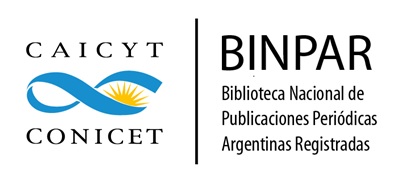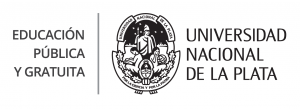Literature and politics: reading, traces and interstices
DOI:
https://doi.org/10.24215/29533821e022Keywords:
communication, literature, narratives, content analysisAbstract
This article addresses the relationships between literature and politics, proposing a perspective from the field of communication. From the case study, the strategies of political enunciation that are plotted in two works of classical literature are linked: The Count of Monte Cristo, by Alexandre Dumas, and Oliver Twist, by Charles Dickens. The work situates the text as a field of meanings that articulates ways of doing, understanding and defining politics at a given moment, from the perspectives of its authors, with their specific life stories and located in specific contextual coordinates.
Downloads
References
Arias, M. y Hadis, M. (2000). Borges profesor. Curso de literatura inglesa en la Universidad de Buenos Aires. Lumen.
Comas, K. y Stoessel, E. (2017). La trilogía de la lectura. En Taller de comprensión y producción de textos II. Cuaderno de cátedra.
Ediciones de Periodismo y Comunicación (EPC). http://sedici.unlp.edu.ar/handle/10915/133301
Dickens, C. (2007) [1837-1839]. Oliver Twist. Andrés Bello.
Dumas, A. (2005) [1844]. El conde de Montecristo. Losada.
Huergo, J. (2005). La educación y la vida. Un libro para maestros de escuela y educadores populares. EDULP. https://problemascomeduc.files.wordpress.com/2013/08/huergo-educacic3b3n-y-vida-parte-2.pdf
Lorente, J. (8 de junio de 2020). El racismo en Estados Unidos y Charles Dickens. The Conversation. https://theconversation.com/el-racismo-en-estados-unidos-y-charles-dickens-140164
Downloads
Additional Files
Published
Issue
Section
License
Copyright (c) 2023 María Florencia Seré

This work is licensed under a Creative Commons Attribution-NonCommercial-ShareAlike 4.0 International License.
La aceptación de un original por parte de la revista implica la cesión no exclusiva de los derechos patrimoniales de los/as autores/as en favor del editor, quien permite la reutilización, luego de su edición (postprint), bajo una Licencia Creative Commons Atribución-NoComercial-CompartirIgual 4.0 Internacional (CC BY-NC-SA 4.0)
Acorde a estos términos, el material se puede compartir (copiar y redistribuir en cualquier medio o formato) y adaptar (remezclar, transformar y crear a partir del material otra obra), siempre que a) se cite la autoría y la fuente original de su publicación (revista y URL de la obra), b) no se use para fines comerciales y c) se mantengan los mismos términos de la licencia.
La cesión de derechos no exclusivos implica que luego de su edición (postprint) en la revista las/os autoras/es pueden publicar su trabajo en cualquier idioma, medio y formato; en tales casos, se solicita que se consigne que el material fue publicado originalmente en Política y Comunicacíon.




















